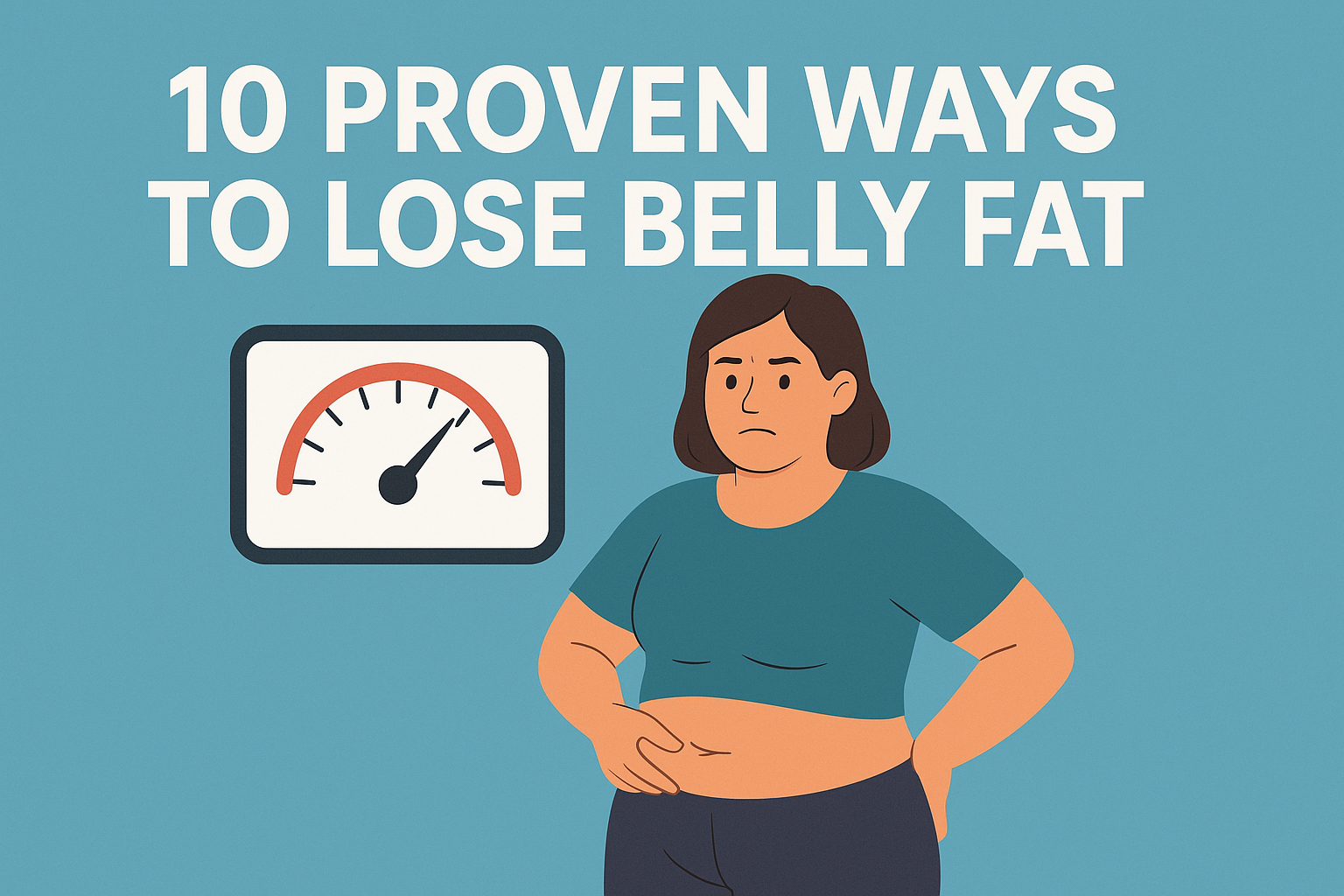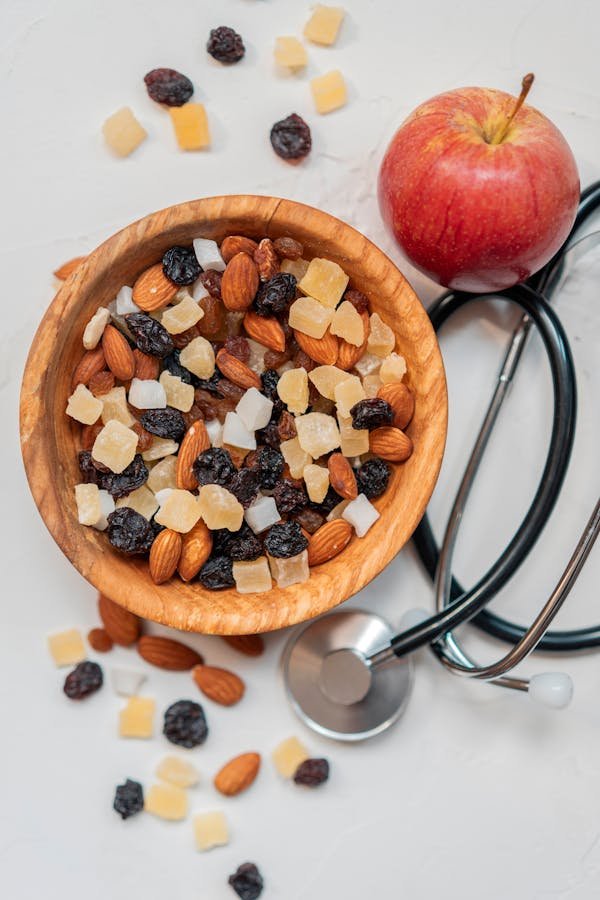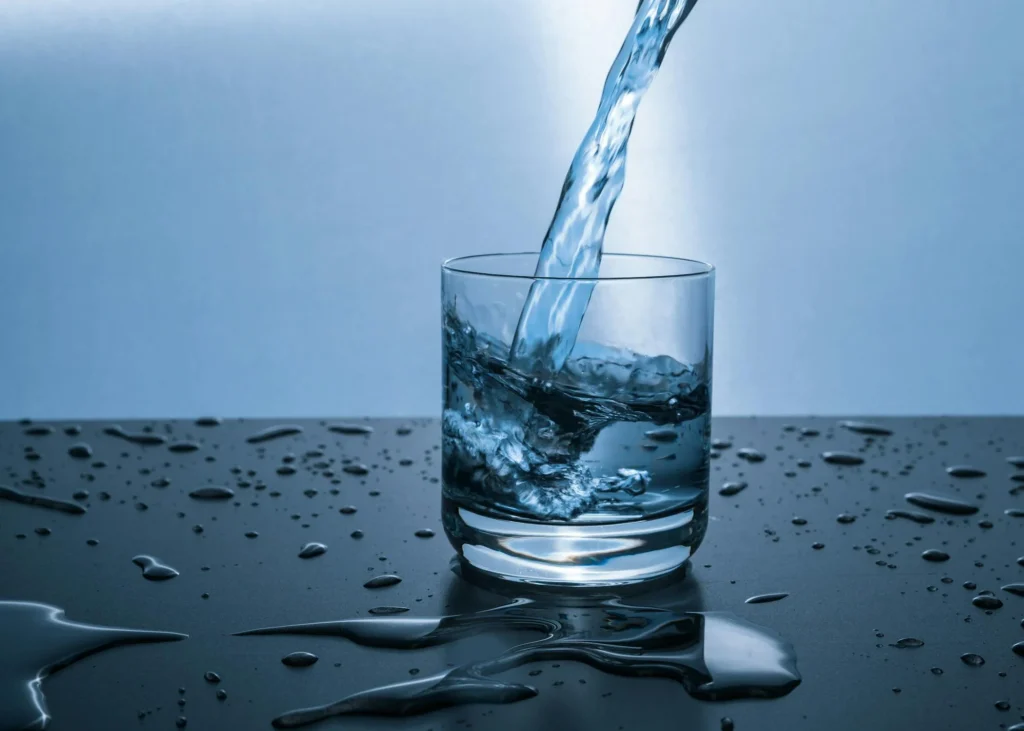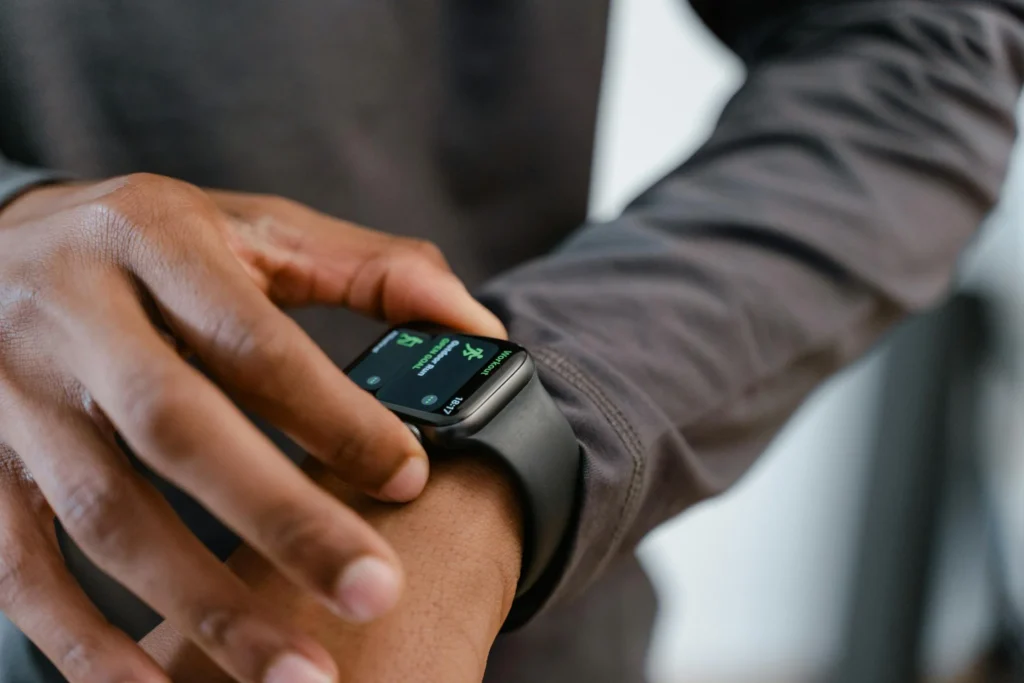Physical Address
304 North Cardinal St.
Dorchester Center, MA 02124
Physical Address
304 North Cardinal St.
Dorchester Center, MA 02124


When it comes to fitness, belly fat is often a primary concern for many people. It’s not just about looking good in a swimsuit; belly fat, especially visceral fat, can be a serious health risk. From increasing your risk of heart disease to diabetes, excess belly fat can have lasting effects on your well-being. In this article, we’ll explore 10 proven ways to lose belly fat for good. These tips not only help you shed those extra pounds but also improve your overall health. Ready to get started?
Before diving into how to lose belly fat, it’s important to understand the types of fat involved. Visceral fat is the deep fat that surrounds your internal organs, while subcutaneous fat is the fat that sits just beneath the skin. While both types contribute to a larger belly, visceral fat is far more harmful and linked to various health issues like high blood pressure, diabetes, and heart disease.
Excess belly fat is more than just a cosmetic concern. It can lead to:
Now that you understand the impact of belly fat, let’s look at ways to get rid of it for good.

One of the most effective ways to lose belly fat is by eating a balanced, nutrient-dense diet. Instead of focusing on restrictive fad diets, aim for a well-rounded diet that includes plenty of fruits, vegetables, lean proteins, and whole grains. This will help fuel your body with the nutrients it needs to burn fat.
Eating whole foods like leafy greens, lean meats, and healthy fats keeps your body in fat-burning mode. Avoiding processed sugars and refined carbs, such as white bread and pastries, is essential because these foods can cause blood sugar spikes and contribute to fat storage.
One of the biggest contributors to belly fat is sugar. The sugar in processed foods and sugary drinks can lead to an increase in insulin, a hormone that promotes fat storage. By cutting back on sugar and focusing on whole, unprocessed foods, you’ll be setting yourself up for success.
Protein is your friend when it comes to losing belly fat. Protein helps build muscle, and the more muscle you have, the more calories your body burns at rest. In addition, protein keeps you feeling fuller for longer, reducing the chances of overeating.
When you consume more protein, your body’s metabolism is boosted, and fat burning becomes more efficient. Protein also reduces your appetite, which is a key factor in avoiding excess calorie intake.
Some excellent sources of protein include:

Exercise is a game-changer when it comes to losing belly fat. Combining cardiovascular exercises with strength training is one of the most effective ways to burn fat and sculpt your midsection.
Activities like running, swimming, cycling, and brisk walking help burn calories and improve your overall fat loss. Aim for at least 150 minutes of moderate cardio per week, or 75 minutes of intense cardio.
Strength training, such as weight lifting or bodyweight exercises like squats and push-ups, helps build muscle mass. The more muscle you have, the higher your metabolism, making it easier to lose fat.
It’s easy to overlook the importance of sleep when trying to lose belly fat, but rest is crucial for weight management. Poor sleep can lead to hormonal imbalances that increase hunger and cravings for unhealthy foods, making it harder to lose fat.
When you’re well-rested, your body functions optimally. Sleep helps regulate hormones like leptin (which controls hunger) and cortisol (which controls stress). When these hormones are balanced, your body is better equipped to burn fat.
Chronic stress leads to an increase in cortisol, a hormone that can promote belly fat storage. Managing stress is therefore essential for fat loss.
Stress increases cravings for high-fat, high-sugar foods, which can contribute to belly fat accumulation. Reducing stress levels can help prevent emotional eating and keep cortisol in check.

Drinking water is a simple yet effective strategy for losing belly fat. Water helps boost your metabolism, aids in digestion, and prevents overeating by keeping you full.
When you’re properly hydrated, your body functions better and can more efficiently burn fat. Additionally, drinking water before meals helps prevent overconsumption of food by making you feel fuller.
Drinking cold water can temporarily increase your metabolism, as your body works to warm the water to body temperature. This small boost can contribute to fat loss over time.
Excessive alcohol consumption is a major contributor to belly fat. Alcohol adds empty calories and promotes fat storage, especially around the waistline.
When you drink alcohol, your liver prioritizes breaking it down over burning fat, which can cause fat to accumulate in the abdominal area. Cutting back on alcohol can significantly reduce belly fat.
Not all fats are bad. Healthy fats, such as those found in avocados, nuts, seeds, and olive oil, can actually help you lose belly fat.
Healthy fats can increase feelings of fullness, reduce inflammation, and improve fat metabolism. Including them in your diet will help you lose belly fat while maintaining overall health.

Tracking your progress helps you stay motivated and on track toward your goals. Whether it’s through journaling, using apps, or taking progress photos, seeing how far you’ve come can be a great source of motivation.
By tracking your diet, exercise, and sleep habits, you can identify areas that need improvement and make adjustments. It also helps you stay accountable to your goals.
Consistency is crucial when it comes to losing belly fat. It’s easy to get discouraged if you don’t see immediate results, but making small, sustainable changes over time will yield lasting results.
The key to losing belly fat is to stay consistent with your diet, exercise, and lifestyle habits. Results take time, but with perseverance, you will reach your goals.
Instead of aiming for drastic changes, set realistic, attainable goals. Aim to lose 1-2 pounds per week, and celebrate the small victories along the way.
In conclusion, losing belly fat requires a combination of healthy eating, regular exercise, and positive lifestyle changes. Focus on nutrient-dense foods, exercise regularly, manage stress, and stay consistent with your efforts. Over time, these proven strategies will help you lose belly fat and improve your overall health. Start making small changes today, and you’ll be well on your way to a healthier, fitter you!
1. How quickly can I lose belly fat?
Losing belly fat takes time, and the pace varies for each individual. Typically, healthy weight loss is about 1-2 pounds per week.
2. Is spot reduction possible?
Unfortunately, spot reduction is not effective. Fat loss occurs throughout the body, and it’s not possible to target just one area.
3. Can I lose belly fat without exercising?
While exercise is important, focusing on a healthy, balanced diet and reducing calorie intake can still help with belly fat loss.
4. What foods should I avoid for belly fat loss?
Avoid processed foods, sugary drinks, refined carbohydrates, and trans fats to prevent belly fat accumulation.
5. How much water should I drink for fat loss?
Aim for at least 8 cups (64 oz) of water per day, but this can vary depending on your activity level and climate.